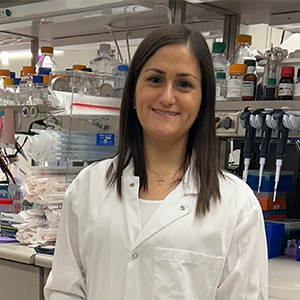-
Science Saturday: Could population genetic screening improve public health?

Hereditary BRCA-related breast and ovarian cancer, Lynch syndrome and familial hypercholesterolemia are estimated to be relatively prevalent in the general population but poorly found using traditional risk screening. In a typical medical practice, genetic testing for these conditions is based on personal or family history, ethnic background or other demographic characteristics, that may not always be easily or accurately gathered by a physician.
Data from a population health study published in Nature Medicine show that population genetic screening efficiently identifies carriers of these genetic conditions, without requiring personal or physician knowledge about them.
“Our experience suggests that population genetic screening in patients will identify at-risk carriers who may not know they are at risk if they just followed routine medical care,” says Matthew J. Ferber, Ph.D., a Mayo Clinic contributing author. “Early detection and intervention could significantly reduce their morbidity and mortality.”
The population study, called the Healthy Nevada Project, targeted Nevada’s diverse demographics, with 23.8% of participants recruited from rural zip codes and 19% from minority groups, predominantly Hispanics and Native Americans. In all, a cohort of 26,906 participants was evaluated to determine whether population screening could efficiently identify carriers of these genetic conditions and the impact of genetic risk on health outcomes.
Researchers found:
- 1.33% combined carrier rate for pathogenic and likely pathogenic genetic variants for BRCA related hereditary breast and ovarian cancer, Lynch syndrome and familial hypercholesterolemia.
- 21.9% of participants had clinically relevant disease, among which 70% had been diagnosed with relevant disease before age 65.
- 90% of the risk carriers had not been previously identified and less than 19.8% of these had documentation in their medical records of inherited genetic disease risk, including family history.
- 25.2% of individuals reported a family history of relevant disease in a direct follow-up survey
“Our results suggest that genetic screening for these conditions has the potential to identify the 90% of at-risk carriers who are not detected in current medical practice."
The findings are consistent with previous studies demonstrating that family history is an independent risk factor for breast and ovarian cancer.
However, their analysis of trends in familial hypercholesterolemia did not show that falling within or outside the guidelines changed the diagnostic pattern for hyperlipidemia or the use of antihyperlipidemic agents.
“Our results suggest that genetic screening for these conditions has the potential to identify the 90% of at-risk carriers who are not detected in current medical practice,” says Dr. Ferber. “This estimate comes from an already engaged cohort, typical of voluntary participation in population studies, and thus underestimates the potential impact of preventative screening in larger populations with diverse cohorts.”
The accelerated disease risk of carriers of these genetic conditions suggests average-risk screening protocols—such as mammography for breast cancer starting at age 50 in women, colonoscopy for colon cancer starting at age 50 in both sexes and lipid screening in individuals over 40 years of age who have a 10-year risk of atherosclerotic cardiovascular disease that is greater than 10%—may not adequately detect disease progression early enough for some at-risk individuals.
Studies have found predisposition genetic screening with a limited panel of genetic information to be cost effective in a population under the age of 45 when testing costs are in the low hundreds of dollars. However, a population health screening approach to genetic medicine requires scrutiny, given the potential for added costs, over interpretation of disease risk and ethical and social factors.
Additional implementation studies are essential before these approaches are ready for standard clinical practice. According to Dr. Ferber Mayo Clinic is running it's own study to similarly characterize a cohort of 100,000 participants.
Dr. Ferber is the director of the Mayo Clinic GeneGuide laboratory focusing on improving health outcomes and accelerating research through population genomics.
Related Articles







